Deezer Africa editor: We curate the best local content
There are many questions floating out there – on YouTube, forums and blogs – about how music streaming services go about their day-to-day business, and the main queries usually have to do with how artists can hit the big time via these platforms.
 Deezer Africa editor Sotiris Moldovanos.
Deezer Africa editor Sotiris Moldovanos.
There are hour-long vlogger explanations about what artists should do to get onto that elusive playlists to reap the millions of plays. Then there are the conspiracy theorists who will persuade their followers that the whole streaming game is rigged by the majors, and that independents should abandon all hope unless they have that million-dollar contract.
Yet stories of independents forging successful careers abound, and all it takes to make heads turn in the streaming game is a high-quality product, intelligent branding and persistence.
So says Deezer's music editor for Africa, Sotiris Moldovanos, who spoke to us about his duties at the streaming platform and the talent-discovery programmes that Deezer is currently busy with. Moldovanos, a former compiler at 5FM and producer at campus radio UJFM in South Africa, says that although Deezer may not have the biggest numbers in terms of users compared to the leading streaming services, the platform's regional curation philosophy makes it second to none.
MUSIC IN AFRICA: What does the job of a regional editor at Deezer entail?
SOTIRIS MOLDOVANOS: As the music editor for Africa, I am responsible for creating and managing programming content for South Africa and key African territories. At Deezer, we focus on a 'local hero' approach – meaning that the editors are experts in our local markets and understand the trends and tastes of our local users. I make sure to always highlight local artists and new releases in our playlists and music channels.
What is different about editing African content at Deezer as opposed to other regions around the world?
As editors, our job is to provide the most relevant content for our local audience as tastemakers. For me personally, when I think of creating content in Africa, I take into consideration the history, cultural diversity and the sounds native to particular regions in Africa. For example, South Africa alone has 11 official languages and rich sounds that are unique and native to the region.
What are some of the challenges in driving African music fans to subscribe to a streaming service like Deezer? Which African country do most Deezer listeners come from?
It can still be a challenge to source and provide the best local content in different regions. In Africa, some local artists have not moved onto streaming platforms yet. At Deezer Africa we have the most listeners from South Africa and a strong growing base from Nigeria.
Would you say Deezer is more of a Francophone-centred platform, due to its French roots, than Anglophone?
No, I would say we are a global music platform that caters to all local markets where Deezer is available. For example, in Africa, our users can listen to their favourite local artists such as Sho Madjozi or Stonebwoy, as well as listen to any global artist of their choice.
Deezer has about 14 million users, 7 million of whom pay for the platform's services. This number is considerably lower than that of Spotify (110+ million paying subscribers) and Apple Music (60 million paying subscribers). What is Deezer doing to compete with these gargantuan leaders of the industry?
We have 14 million monthly active users, and although we are a challenger brand, we have one of the most diverse music catalogues, which includes 56 million tracks from around the world and we are available in over 180 countries. What we are focusing on is creating the best local content for our local users and that means gqom in South Africa, Afrobeats in Nigeria, gospel in Brazil and reggaeton in Latin America. In South Africa we have dedicated channels for house and kwaito music, Afrikaans music, and local gospel.
What is different about Deezer's service compared to the aforementioned companies, and what in your opinion is Deezer doing better than Spotify, Apple Music, Amazon, Google Play, and so on?
Besides taking that 'local hero' approach that I mentioned earlier, Deezer is also the only service to offer Flow, your personal soundtrack that knows what you want to hear. Flow is the ultimate lean-back experience that uses Deezer’s unique data and algorithms, as well as editorial recommendations, to play songs that are personalised for each user. Flow also makes new suggestions to help users discover new songs and artists.
Deezer was also the first to launch an artist-first programme called Deezer Next, where we select up-and-coming artists and give them our full editorial support for 12 months including editorial inclusion in playlists, marketing, PR and social support. In Africa, we’ve named Easy Freak and Tshego as our local priority Next acts.
Deezer recently announced a pilot roll-out of a new user-centric royalty payment system (UCPS). Could this be a game-changer in the industry, considering the paltry royalties artists receive in the streaming era? It was reported that Deezer will need backing from the three major holders of music rights − Sony Music Entertainment, Universal Music and Warner Music Group − to ensure that the UCPS is successful. How feasible is the buy-in from these companies and do you think Deezer will set the standard if the pilot in France is successful?
We believe in fair artist payment, and we are proud to lead the initiative within the music industry – but UCPS can work the best when we have the support from all rights holders. We are having positive conversations with relevant labels and stakeholders and hope to be able to launch a UCPS pilot in France in 2020.
Independent musicians use digital distributors/aggregators to get their music on streaming platforms. Many have been asking how streaming platforms pay out their royalties and the systems they need to have in place in order to get their money. Could you provide more clarification on exactly how royalty payouts work, particularly with Deezer? In addition, could you give independent artists some pointers on what they need to do to get the most traction out of their Deezer profiles?
Deezer has contracts in place with all relevant rights holders and we pay out royalties and provide them with data in accordance with the contracts we have in place. While we cannot comment on confidential contracts, approximately 70% of our revenues go directly to rights holders. We don’t pay artists directly, and it is the rights holder's responsibility to distribute money to the artists.
Independent artists need to register their music with an aggregator who will then distribute their content to all digital platforms, and facilitate royalty payments. Aggregators offer different deals and payment structures, and artists need to find one which works best for them. The artist’s profile should be seen as an extension of the artist’s brand, almost like a mini website. Artist’s need to make sure the profile is correct and regularly updated. The profile can be used to promote content, whether it’s a new release, a throwback or a featured playlist. This will help build the fan base.
Playlists are a great way for upcoming artists to get traction. What do they need to do to get on Deezer-curated playlists?
Artists need to make sure they send all the correct information when pitching to local editors, or the global central system. Include a biography, press shot and preview link. Artists should have a good understanding of current trends, and identify relevant playlists where their track could potentially be added. Music should be pitched within an adequate planning time and most importantly, be of high-quality music.
Tell us more about the Deezer Next programme and how it has aided in progressing the careers of upcoming musicians.
Deezer Next is an annual programme designed to support emerging talent. We name global as well as local acts like Tshego, a South African R&B singer and songwriter. Now in its second year, the programme is a great way for these artists to reach a worldwide audience as we dedicate 12 months of support that includes playlisting, creative marketing campaigns involving special content, fan events, PR and social media amplification.
The current Deezer Next 2019 global priority acts have already experienced over 282% increase in streams since the programme began. Lewis Capaldi has seen an increase of 854% in fans and 244% in monthly streams since the start of the programme. Easy Freak has experienced more than 1 000% increase in monthly streams. Tshego has reached an increase of 230% in monthly streams and doubled his fan base.
We also recently launched a dedicated Deezer Next channel that includes exclusive content from Next artists, including live sessions and their personal 'inspirational' sessions.
One website ranked Deezer as the 'best platform if you have children'. Is this a unique selling point for Deezer?
We definitely try to cater to all groups, and families are no exception, as we offer an affordable family plan, that gives up to six logins, including a shared family mix for the whole family.
Which are the best performing genres in Africa at the moment?
Pop, hip hop and dance
Who are the best performing African artists on Deezer in 2019?
Burna Boy, Mr Eazi and Wizkid.
Recommendation engines are a big talking point in the streaming era. Tell us more about this technology.
At Deezer, our recommendation engine is based on the listening habits of our users. Our data and algorithms can determine the type of music that users want to listen to as an individual, and as we take a local approach we can even see on a regional level the type of music that would appeal the most to users based on their geographical location.
For example, in South Africa, the top performing artists are Post Malone and Ed Sheeran, whereas in Nigeria it’s Burna Boy. We don’t only rely on data to make personal recommendations, as music editors like myself are also responsible for keeping our finger on the pulse of what’s trending and discover new artists.
There has been a lot of talk about human meddling in recommendation engines, with certain artists getting precedence over others. Many commentators are saying that this is akin to the payola system where big labels pay streaming services to get their artists ahead. Can you comment on algorithm doctoring in the streaming space?
I can’t comment on other streaming services, but I know that at Deezer we have a very strict policy and would not accept any payouts from labels to advance any artist.
Streams from fraudulent accounts and bots have always been a problem with streaming platforms. How is Deezer countering this issue, apart from the possible introduction of UCPS?
We have systems and processes in place to monitor streaming activities, catch and highlight irregularities and flag potential fraud on the platform. Combating fraud is a key priority and I’m proud to say that we’ve done a lot of work on this from a technical standpoint at Deezer.
What is Deezer doing to protect intellectual property and tackle piracy on the platform?
Piracy is a problem that still affects all streaming services around the world. I think it’s important to educate consumers about how piracy hurts artists, and reinforce the benefits that streaming services like Deezer can offer. A Premium plan at R60 ($3.66) in South Africa offers many benefits including offline listening, downloads, and ad-free listening.
When it comes to piracy on the platform, we work closely with rights holders to take down illegal content. While we can’t monitor each of the tens of thousands of tracks that get uploaded to the platform daily, we have processes in place to help rights holders ensure that their content is correctly represented on Deezer.




















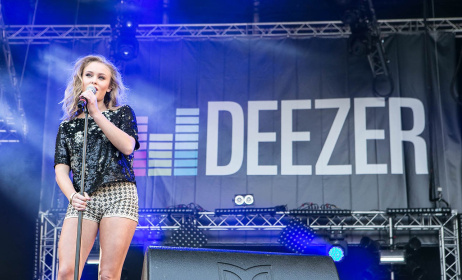
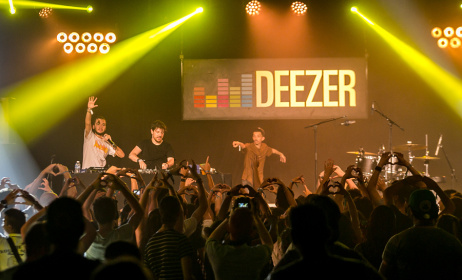

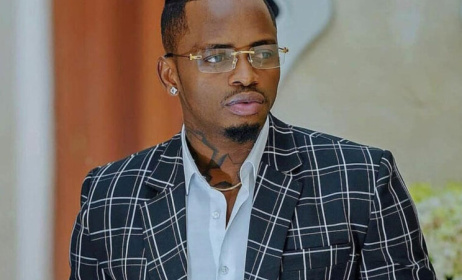
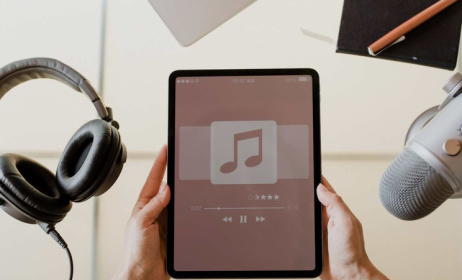

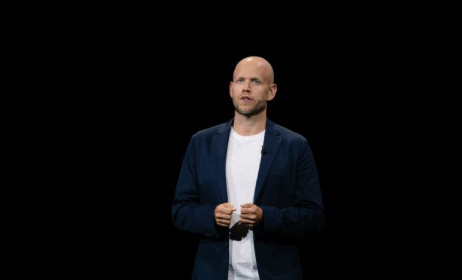
Commentaires
s'identifier or register to post comments